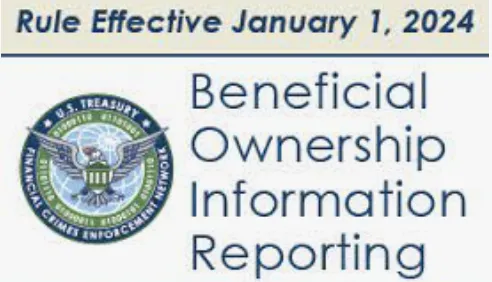Key Takeaways: Massachusetts Corporate Tax Rate
- Massachusetts is considered a business-friendly state, known for its focus on education, innovation, and simplification of business regulations.
- A corporation is generally subject to Massachusetts tax jurisdiction if it has property, employees, or conducts business activities in the state.
- Nexus-creating activities, such as regular visits, economic or virtual contacts, can establish a corporation’s tax jurisdiction in Massachusetts.
- The Massachusetts corporate excise tax is based on both income and net worth, and the applicable rate is determined by a combination of factors.
- The state requires sales tax on Software-as-a-Service (SaaS) transactions, considering the use and functionality of the software.
- Remote sellers and marketplace facilitators may have tax collection responsibilities if their Massachusetts sales exceed $100,000 in a calendar year.
Is Massachusetts a business-friendly state?
Massachusetts is a leader in education, innovation, and business friendliness and has worked to improve the ease of doing business there. Your company may be able to take advantage of certain incentives, tax breaks, and other programs to support your new business, provided it meets the qualifying criteria. One good example is the Economic Development Incentive Program (EDIP).
The first step in starting a business in the State of Massachusetts is visiting the official website of the Commonwealth of Massachusetts. It is important for corporations with any connection to Massachusetts to review the Corporate Nexus regulation to determine their tax obligations.
What factors should be considered to determine if a corporation is subject to Massachusetts tax jurisdiction?
A corporation that is subject to the tax jurisdiction of Massachusetts is generally required to file returns with the Department of Revenue. A general business corporation is typically subject to the tax jurisdiction of Massachusetts when it owns or uses property in the state, has employees in the state, or is otherwise conducting business in the state.
If a corporation is subject to Massachusetts’ tax jurisdiction, it is said to have nexus with the Commonwealth. Nexus-creating activities can include regular or systematic visits by employees or representatives of the corporation in Massachusetts, or economic or virtual contacts that exceed a certain dollar threshold.
All corporations that have any type of connection to Massachusetts, should review the Corporate Nexus regulation, to determine whether the corporation is subject to Massachusetts tax jurisdiction.
A corporation that has nexus with Massachusetts is subject to one of several different filing requirements. The applicable filing requirement depends on the type of business the corporation conducts.
Examples of contacts or other incidents that will typically subject a general business corporation to tax jurisdiction taking into account the principles that apply under the U.S. Constitution, include, without limitation, the circumstances where such corporation:
1. is incorporated or organized in the state;
2. is headquartered or commercially domiciled in the state;
3. owns real or tangible personal property in the state, including property that is possessed, held or used by another person pursuant to a lease, license, consignment or other arrangement;
4. uses real or tangible personal property that it does not own in the state, including property that it possesses or holds pursuant to a lease, license, consignment, or other arrangement;
5. has a full or part-time employee acting on its behalf in the state, irrespective of the nature of the employment;
6. has an independent contractor or other non-employee representative acting or operating on its behalf in the state for the purpose of selling, delivering, installing, assembling, maintaining, or repairing the corporation’s products; taking orders for, or otherwise establishing or maintaining a market for the corporation’s products and/or services in the state;
7. owns or uses intangible property in the state where:
a. the intangible property generates or is otherwise a source of gross receipts within the state for the corporation, including through a license, sublicense, or franchise; and
b. the activity through which the corporation obtains such gross receipts from the intangible property is purposeful (e.g., a contract, license or sublicense); or
8. does not have the contacts or other incidents with the state as referenced in 830 CMR 63.39.1(3)(b)1. through 7., but has considerable in-state sales derived through either economic or virtual contacts.
Does having a mailing address in Massachusetts trigger corporate income tax and/or registration requirements?
States cannot just simply impose income tax on businesses,there has to be a connection, which is called nexus, between the business and the state. In most cases, there will be an income tax nexus if the business has substantial economic activity in the state. Nexus standards have evolved over time. The physical presence standard was replaced by an economic nexus concept. Some states are now adopting the factor presence standard to determine if nexus exists.
Generally, a company has nexus in Massachusetts when it has a physical presence there, such as a retail store, warehouse, inventory, or the regular presence of traveling salespeople or representatives.
And economic nexus is presumed in Massachusetts when the corporation’s sales for the taxable year exceed $500,000. Conceivably, nexus can be established with sales of less than $500,000.
A corporation that is subject to the tax jurisdiction of Massachusetts is generally required to file returns with the Massachusetts Department of Revenue. A general business corporation is typically subject to the tax jurisdiction of Massachusetts when it owns or uses property in the state, has employees in the stat,e or is otherwise doing business in the state.
If a corporation is subject to Massachusetts’ tax jurisdiction, it is said to have nexus with the Commonwealth. Nexus-creating activities can include regular or systematic visits by employees or representatives of the corporation in Massachusetts, or economic or virtual contacts that exceed a certain dollar threshold.
What is Massachusetts Corporate Excise Tax?
The Massachusetts Corporate Excise Tax is a tax imposed on corporations conducting business within the state of Massachusetts, similar to a franchise tax. It is a combination of the Corporate Income Tax and Corporate Minimum Excise Tax. Corporations, both domestic (incorporated in Massachusetts) and foreign (incorporated outside Massachusetts, but doing business in the state), are subject to this tax. The business type determines which taxes apply and their amounts.Corporate Income Tax is based on the corporation’s net income or net profits earned from business activities conducted in Massachusetts. The tax rate for the Corporate Income Tax is a flat rate and is applied to the corporation’s taxable net income after various deductions, exemptions, and credits are taken into account.
Even if a corporation has little or no net income in a given year, it is still required to pay a minimum tax amount, known as the Corporate Minimum Excise Tax. This minimum tax is based on the corporation’s total assets, including tangible and intangible property, and is calculated at a fixed rate. The minimum excise tax for corporations of $456.
For example, corporate excise tax is the sum of an 8.00% tax on income attributable to Massachusetts and a tax of $2.60 per $1,000 of the greater of either taxable Massachusetts tangible personal property or taxable net worth.
The Massachusetts Department of Revenue is responsible for administering and collecting the Corporate Excise Tax. Corporations are required to file an annual tax return (Form 355) with the Department of Revenue, reporting their income, deductions, and applicable credits. The due date for filing the return and making tax payments is usually the 15th day of the third month following the close of the corporation’s tax year, or March 15th for most companies.
Is there a sales tax in Massachusetts?
The Massachusetts sales tax is 6.25% of the sales price or rental charge of tangible personal property (including gas, electricity, and steam) and telecommunications services sold or rented in Massachusetts. The buyer pays the sales tax, as an addition to the purchase price, to the vendor at the time of purchase. The vendor then sends the tax to Massachusetts. Even if the business is located outside of Massachusetts, if it has a sufficient physical presence within the state, it must collect and remit sales tax on taxable transactions within the state.
Why does Massachusetts require sales tax on Software-as-a-Service (SaaS)?
Massachusetts requires sales tax on SaaS. This means that businesses that provide SaaS products will need to collect and remit sales tax to the state.
Massachusetts states that even in cases where the vendor of the software gives the user the option to securely access the software on the vendor’s server through the Internet, the functionality of the software is the same. Therefore, the object of the transaction is the use of the software. Requirements for prewritten software are still subject to sales and use tax regardless of the method of delivery (whether with a physical medium, downloadable or accessed via the Internet) or if possession or control is given.
You can learn more about why Massachusetts requires sales tax on Saas at 830 CMR 64H.1.3.
What are the guidelines for remote sellers and marketplace facilitators?
Remote sellers must collect tax on sales of tangible personal property or services in Massachusetts when they have Massachusetts sales that exceed $100,000 in a calendar year. Marketplaces must collect tax on behalf of third parties (“marketplace sellers”) selling on the marketplace when the marketplace’s total Massachusetts sales (including those facilitated on behalf of marketplace sellers and those made directly by the marketplace on its own behalf) exceed $100,000 in a calendar year.
What steps should be taken to close a business in Massachusetts formally?
Closing a business that you have worked hard for can be emotionally heartbreaking. However, a business owner must do it to move on to another chapter in life. Ensuring the proper closure of the business will help you move forward. If you are closing a business, visit MassTaxConnect’s How to Close an Account tutorial video.
All filings need to be completed up to the business closing date to avoid any future assessments, both state and federal taxes need to be paid, and a final return filed.
Dissolution filings required:
- Business/Professional Corporations must file Articles of Dissolution.
- Foreign Corporations & Limited Liability Partnership (LLPs) must file a Certificate of Withdrawal.
- Limited Partnerships must file a Certificate of Cancellation.
- Limited Liability Companies must file a Certificate of Cancellation (domestic) or Certificate of Withdrawal (foreign).
State Tax Filings required:
- Sole proprietors should stop filing the Schedule C with the individual income tax return when their business completely closes.
- Corporations must file a final corporate excise tax return by selecting the oval box labeled final return.
- Partnerships must file a final Form 3, Partnership Return of Income, and attach a copy of the U.S. Form 1065 and Schedule K-1.
What are the deadlines for filing business returns in Massachusetts?
- Corporations & Single-Owner LLCs – Due by the 15th day of the fourth month following the close of the corporation’s tax year. Typically, this is April 15th for calendar year companies.
- S-Corporations & Partnerships – Due by the 15th day of the third month following the close of the s corporation’s tax year. Typically, this is March 15th for calendar year companies.
Returns not filed on or before the due date are also subject to a late return penalty of 1% per month of the tax due, up to a maximum of 25%. You’ll also be charged interest on any tax not paid on or before the original due date. Visit understanding penalties and interest for more information.
Can Cleer help with my Massachusetts State income tax?
Absolutely! Cleer offers consultations to discuss the best structure for your startup business no matter what state you register in. We also offer Corporate Income Tax Packages which includes your state tax as well. We also offer all-inclusive bookkeeping packages, which include your monthly statements plus your federal and state tax returns.
If you need any help, feel free to contact us.










